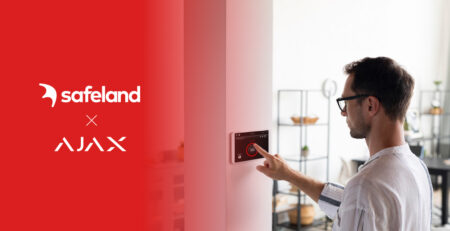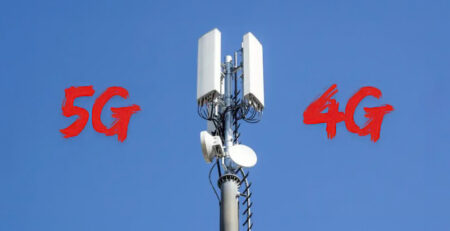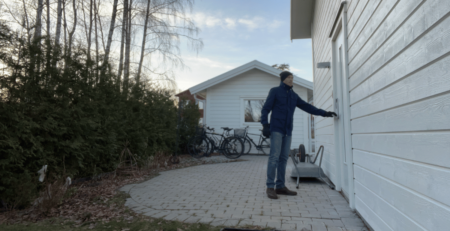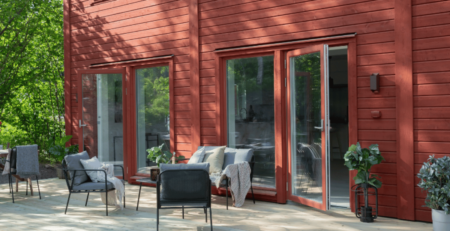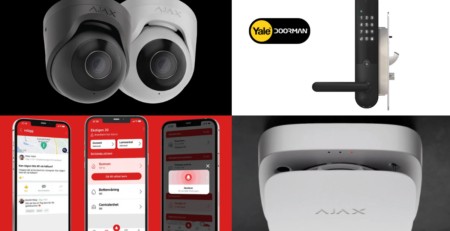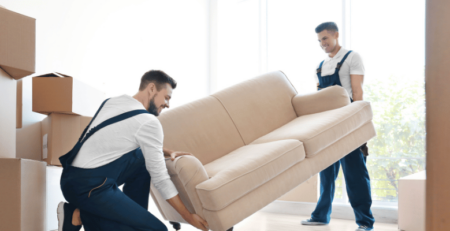A short guide to help you find the best home alarm
The home security market is ever-changing and so fast developing that it can sometimes be hard to know where to start when it comes to securing your home. In this guide, we will share our take on key questions you should consider before purchasing the best home alarm for you.
In the past, home alarms were noisy boxes, activated by pulled cables or tripped wires (we’ve all seen Mission Impossible). Nowadays, home alarms can stream live video, share ongoing information in real time and provide remote access using your phone. So if you’re interested in buying, where should you start?
Should you go with a full alarm service provider or a DIY alarm?
Full alarm providers will come to your home and fit your property with a full alarm service so you don’t have to lift a finger or worry about installing an alarm incorrectly. They can also monitor activity from your alarm and act when your alarm is triggered.
Alternatively, you can purchase a modern DIY alarm, such as ERA or Nest that you install and monitor yourself, still benefit from an array of features and leave the monitoring in your own hands.
The two differences between a full alarm service and DIY alarms are the price and the ability to receive added security services.
An average full alarm service customer will be tied to their alarm for a minimum of 3 years, totalling around £2,000. That cost includes ongoing customer service, meaning any additional features, maintenance or installations are taken care of by the provider.
A DIY alarm is a one-payment of around £300-£400, which is about 75% cheaper if you include the Safeland Connect Homes service so you can benefit from the quick response of your collaborating neighbours.
Alarm Receiving Centres and Security Guards?
With full alarm service providers, you receive 24/7 support when your home alarm is triggered. Some of them also have the option of engaging security guards who can visit your home or call the police. These guards usually don’t have any more authority than a normal person to support or intervene – so don’t expect them to take down a burglar themselves. However, they can certainly check on a home or call the police within a short timeframe.
Is it better for alarms to use WiFi or GSM?
GSM basically means a SIM card is built into the main unit of the alarm, which communicates using phone towers, exactly the same as your phone. In order for this to work, a mobile subscription including data is needed (ie a SIM card with data on it)
Most homes these days have access to WiFi. A cloud-based alarm uses WIFI to communicate. This means there is no need for a SIM card and, therefore, there is no additional charge for maintaining a SIM card.
In addition, WiFi alarms are often better at updating your home’s location.
The thing to be aware of is that WIFI depends on a functioning connection. If your home’s WIFI goes down, or a burglar manages to disrupt the connection, the alarm cannot alert when it’s triggered. However, most good alarms will alert you when the connection has been disturbed.
There are a number of alarms support both WiFi and GSM, which means you can cover both bases for added peace of mind.
Should I have a camera as part of my home alarm?

The ongoing development of cameras in home alarms is impressive.
Not only is the image quality now very good, even in the dark, a majority of these alarms have the ability to recognise and differentiate faces. Burglars have voiced their concerns over the presence cameras at a home. It is our opinion that good quality images and footage will assist greatly in the identifying and arrest of criminals.
It’s worth mentioning that home alarm systems utilising cameras are usually controlled using an app. It’s also worth highlighting hat cameras are expensive if you want intended to have visuals of your entire house.
What’s the opinion of Smart Home Apps?

Many alarm providers offer an app that can be used to control the alarm from your device, commonly referred to as “Smart Home”.
Keep in mind, however, that the quality and usability of use of these apps can vary. Larger alarm companies will usually have a higher quality app, while smaller ones have more limited or simpler apps. To get an idea of the standard of an alarm manufacturer’s app, check out the app reviews on the App Store or Google Play.
How do I get the fastest response to a fire or burglary at my home?

Most decent alarms will be able to alert you when the alarm is triggered. Full alarm service providers have a call centre that will start responding to the alarm. It is worth noting that, while call centres promise to respond to a triggered alarm quickly, it doesn’t not necessarily mean they will contact police straight away. It often takes several minutes before a security guard is sent out to investigate.
Some alarms are able to send information automatically to a list of recipients – for example, an SMS can be sent to a list of pre-selected friends and family members. A limitation here is that recipients do not get any more information surrounding the triggered alarm – for example, if someone has gone to check out the home and found that it was a false alarm.
Naturally, the alternative we encourage is the Safeland Connect Homes service which allows a group of people to receive your alarm triggers, but provides a collaborative group environment for those recipients so they can actively work together, rather than only receive information.
By connecting the alarm to your own local security team in Safeland, neighbours are automatically be informed and updated. Anyone with additional information can share this, too, providing a local response team.
Safeland Connect Homes can support both DIY alarms and full alarm services.
Is it difficult to install a home alarm yourself?
Nowadays almost all alarms use radio technology (ie no cables), which makes installation much easier and leaves your house looking neat and wire-free.
In many cases, alarms come already semi-configured, meaning instruction manuals are only a couple of pages.
Here at Safeland, we test and install all the alarms we work with, to ensure we endorse alarms that are a high quality and straight-forward usability.
House, holiday home or apartment – what suits best?
The biggest difference between houses, holiday homes and apartments is the risk of being subjected to burglary. If you live on the seventh floor of an apartment block with security entrance, it is probably sufficient enough to install an alarm sensor or camera in your entrance hallway. If you live in a house with a balcony or several windows facing the street, more sensors should be used to cover all potential break-in points.
For holiday homes, we recommend a DIY alarm with GSM (SIM card), mainly to save on cost. With an added collaborative group in Safeland, people nearby your holiday home can provide information if an alarm is triggered and you’d probably have a nice neighbor who will help fix a window if it became broken.
Beware of these things when looking for an alarm!
Full alarm service contracts
Some full alarm service providers may offer their hardware very cheap if you agree to a longer contract. This simply means you will be tied to this vendor for a long time and it can be difficult to break these contracts.
Hidden costs
While you may believe your full alarm service costs a certain amount per month, be aware that if during your contract you need to change a battery, require any maintenance or wish to temporarily disconnect the service (if, for example, you’re renovating your home) it will likely be at an additional cost or increase your monthly fee. It’s always good to ask questions about maintenance and temporary disconnection when negotiating with your alarm provider.
What happens after contractual period has ended?
Some full alarm service providers will offer you the alarm system after your contracted time has ended. Just be aware that some alarms, even if you own them, are un-usable without the paid subscription service of the alarm provider, deeming the hardware useless unless you continue paying.
Budget alarms from Asia?
There are some excellent products that are manufactured in Asia, but unfortunately there is also a lot of junk. We recommend that you purchase an alarm that is certified with UK or European standards. If you have home and contents insurance, you should get advice from your insurance provider to ensure your choice in alarm meets their own standards of what’s acceptable protection.
Summary
The most important aspects you will mostly likely focus on are the cost of the alarm, whether or not you want to install it yourself and whether the feature of the alarm satisfied your peace of mind.
On our site, we list alarm suppliers that meet our requirements and which we think are good for protecting a variety of homes and cases. All our preferred alarms naturally have support for Safeland Connect Homes, to ensure your home gets the faster response.
Good luck with your choice,
Team Safeland
